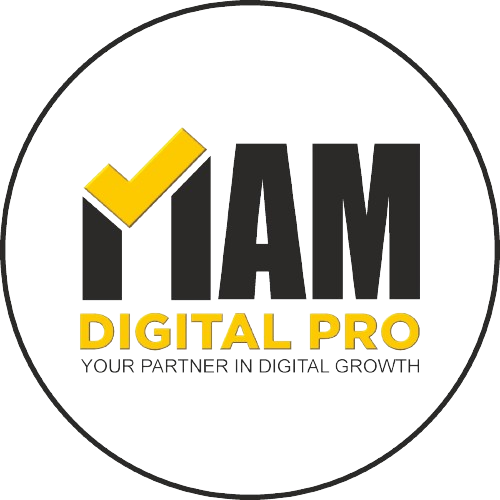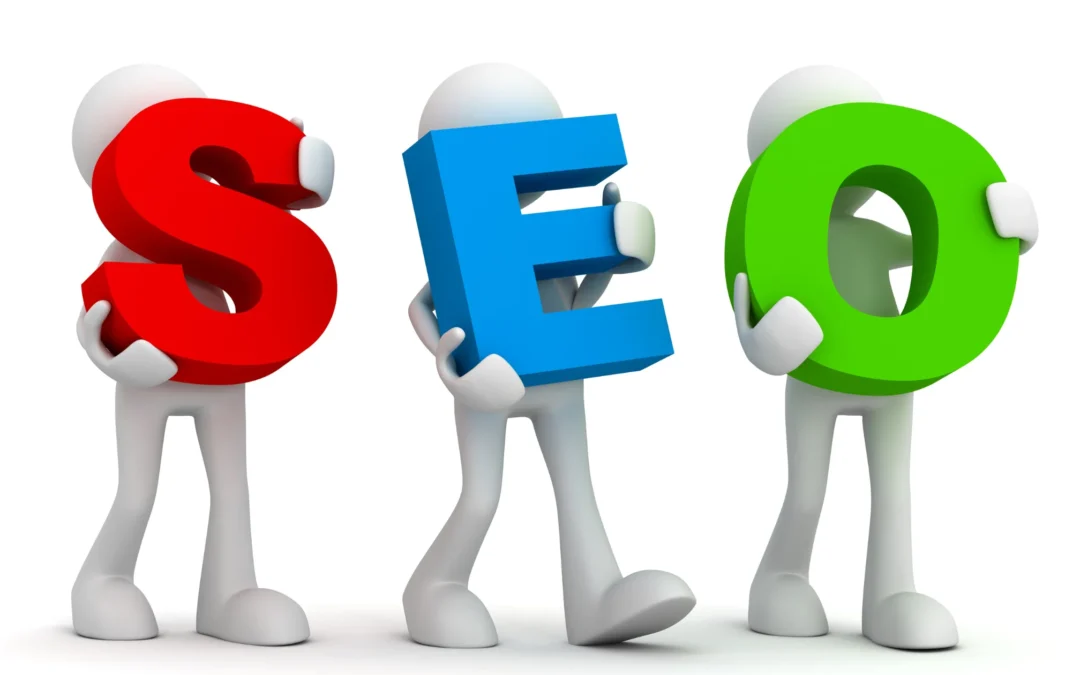Search engine optimization, or SEO, improves a website’s ranking in search engines like Google. For any business today, having a solid SEO strategy is crucial for reaching potential customers online.
This comprehensive guide will explain what SEO is, why it’s essential, and the key elements you need to optimize for search engines in 2023. Whether you’re new to SEO or looking to brush up on the basics, read on to learn how to make your website more visible and drive more traffic from searches.
What is SEO, and Why is it Important?
SEO stands for search engine optimization. It refers to strategies and techniques that help your website rank higher in unpaid “organic” search results. The higher your website ranks for keywords related to your business, the more visibility it will get in search engines. This ultimately drives more relevant traffic to your site.
SEO helps to increase visibility and brand awareness, as well as increase sales. It is also an effective way to build relationships with potential customers. There are a few key reasons why SEO is crucial for any business today:
Increased Website Traffic: Higher rankings lead to increased website clicks and visitors. Over 90% of web traffic comes from search engines.
Brand Visibility: Appearing on the first page for your keywords builds authority and trust in your brand. It improves recognition and discovery.
Competitive Advantage: Outranking competitors in search engines allows you to capture more market share in your niche.
Cost-Effective: SEO helps you get found by your target audience for free, unlike paid ads and marketing.
High Return on Investment (ROI): Improved rankings have been proven to provide incredibly high ROI compared to other marketing channels.
In 2023, mastering core SEO fundamentals will be more critical than ever for succeeding online. Let’s look at the key elements you need to optimize.
The 7 Essential Elements of SEO Success in 2023
Many aspects of on-page and off-page optimization factor into search engine rankings. Based on the latest SEO best practices, here are the 7 core elements that you should focus on:
1. Keyword Research
Thorough keyword research is the foundation of an effective SEO strategy. This involves identifying and analyzing keywords (queries) your target audience is searching for and then strategizing how to rank for those terms.
List your core products, services, content types, and other keywords relevant to your business. You can use free keyword research tools like Google’s Keyword Planner, SEMrush, or Moz’s Keyword Explorer to find high-priority keywords and related long-tail variations. Make sure to identify keywords with sufficient search volume and low competition.
Monitoring your top keywords over time gives you valuable insights for improving rankings. Advanced keyword cluster analysis can help you identify opportunities for targeting keyword groups more effectively.
2. On-Page Optimization
This refers to optimizing elements on your website pages to improve search visibility and rankings for your target keywords. Important on-page factors include:
Page Titles & Meta Descriptions: Make these compelling keyword-rich to drive clicks. Limit title length to 60 characters.
URL Structure: Include your primary keywords in URLs for pages where possible. Keep URLs short and descriptive.
Headings (H1, H2 tags): Use target keywords in heading tags to indicate topic relevance. Break content into logical sections.
Content: Focus on creating valuable, engaging content that contains keywords naturally without over-optimizing.
Image Alt Text: Use keywords in alt descriptions for images to improve visibility.
Page Speed: Faster loading pages improve rankings and user experience. Optimize images and scripts.
3. Content Creation and Optimization
Creating high-quality, helpful content that targets your focus keywords is hugely important for SEO success. Ensure your site has a regular cadence of blog posts, videos, and other media that align with your goals.
When creating content:
- Focus on informational content that solves a user query or problem.
- Include keywords naturally in the first 100 words of a blog post when possible.
- Create different types of media like infographics, guides, videos, etc.
- Promote your content through social media, PR, email, and other channels.
- Update old content by refreshing it with new facts, data, examples, etc.
4. Local SEO
For businesses that serve customers locally, optimizing for Local SEO is critical. This allows you to rank in the map pack section and drive foot traffic. Tactics include:
- Creating and verifying your Google My Business listing with complete info.
- Building local citations by registering your business on directories like Yelp.
- Embedding your business address, contact info, and schema markup on your site.
- Encouraging customer reviews on your GMB listing and other sites.
- Creating location pages on your site targeting the area you serve.
5. Link Building
Gaining high-quality backlinks from other authoritative sites helps boost your authority in search algorithms. Link-building tactics include:
- Content marketing to earn genuine organic links.
- Guest posting and contributor outreach.
- Strategic partnerships with complementary brands.
- Cultivating brand mentions on industry websites.
- Promoting your content on relevant platforms.
- Focus on slow, steady, sustainable strategies to build diverse linking domains over time.
6. Mobile Optimization
With over 50% of search traffic coming from mobile, having a responsive, mobile-friendly website is mandatory. Ensure your site displays and functions flawlessly on all devices. Other tips:
- Adopt a mobile-first design and development approach.
- Avoid interstitials and pop-ups that disrupt the mobile experience.
- Design easy tap targets, navigation menus, and CTAs for mobile.
- Optimize page speed on mobile networks. Google recommends under 3 seconds.
7. Core Web Vitals & Performance
Google has stated core web vitals, and performance are key ranking factors. Here are some best practices:
- Page Experience: Improve LCP, CLS,2, and other core web vitals metrics.
- Page Speed: Aim for under 3 seconds of server response time.
- UI/UX: Eliminate friction and create easy user flows.
- Structured Data: Use schema.org and rich snippets to enhance data.
- Security: Use HTTPS and implement other security best practices.
Critical Differences Between SEO and PPC
SEO and PPC are two major digital marketing channels, but they have some fundamental differences:
| Factor | SEO | PPC |
| Cost | No direct costs, just staff time/effort | Requires ongoing budget based on clicks/impressions |
| Results | Gradual long-term improvement in rankings | Instant results from advertising |
| Traffic Source | Organic search engine results | Sponsored ads on search & other networks |
| Targeting | Broad relevance-based targeting | Advanced targeting options available |
| Control | Limited control over rankings | Complete control over ads served |
| Conversion Rates | Higher organic search traffic | Varies greatly based on factors like ad copy/placement |
Generally, SEO and PPC work best by complementing each other’s strengths and weaknesses.
SEO Tips and Best Practices For Beginners
If you’re new to SEO, keep these core tips in mind:
- Learn SEO basics – Understanding how search engines work is vital for optimizing correctly.
- Research competitor rankings – See what your competitors are doing well in SEO and where you can leapfrog them.
- Start with site architecture – Ensure your site’s information architecture and technical foundations support optimization.
- Create keyword-optimized content- Focus on targeting topics and keywords your audience is searching for.
- Build authoritative backlinks – Earn trustworthy links from industry websites to boost rankings.
- Monitor analytics – Use tools like Google Search Console to track keyword rankings and site traffic.
- Optimize gradually and consistently – Search engines favor sites that improve progressively over months versus “quick fix” tactics.
Conclusion
Now, you have a solid understanding of search engine optimization and the critical elements for SEO success in 2023. Mastering these core basics, you can craft an effective SEO strategy tailored to your business goals.
The most important points to remember are:
- Keyword research is the starting point for SEO.
- Optimize your on-page elements for target keywords.
- Create high-quality, helpful content consistently.
- Build authority through local optimization and backlinks.
- Make your website mobile-friendly and fast.
Focus on providing the best user experience, not just search engines. Your website can rank highly and drive significant organic growth with dedication.
What aspect of SEO are you most excited to put into practice? Let me know in the comments! Do you want a custom SEO audit for your website? Get in touch, and our experts can assess your site’s current SEO health and provide recommendations to increase organic traffic.
Let me know if you have any other questions except the following FAQs!
FAQs
1. What is search engine optimization?
Search engine optimization refers to strategies and techniques that help your website rank higher in unpaid “organic” search results in engines like Google. It makes your website more visible to your target audience.
2. How does search engine optimization work?
It improves your website’s content, code, links, and authority, making it more relevant for target keywords. Search engines use bots and algorithms to analyze these on-page and off-page factors to determine a site’s ranking.
3. What are the benefits of search engine optimization?
The main benefits include increased website traffic, brand awareness, authority in your space, lead generation, and higher conversions and sales. It delivers results without ongoing advertising costs.
4. What are some crucial factors in search engine optimization?
Essential factors include keyword optimization, loading speed, mobile-friendliness, quality backlinks, meta tags, schema markup, site security, technical foundations, and valuable content creation.
5. How can I learn about search engine optimization?
Start by studying the basics, like how search engines work. Read leading resources like Moz, Ahrefs, and Search Engine Journal. Take online courses, follow experts on social media, and stay up-to-date.
6. How long does search engine optimization take to work?
It takes consistent effort over an extended period to see significant results. Most sites take 6-12 months of focus to improve rankings. It is an ongoing process, not a one-time fix.
7. Which is better – search engine optimization or PPC?
Search engine optimization and PPC work best together. Search engine optimization brings in organic traffic, while PPC ads complement it with paid traffic. Search engine optimization tends to provide better ROI over the long term.
8. Should I hire an agency or do it myself?
It depends on your budget and expertise. Hiring an agency provides experience and resources but can be expensive. Doing it yourself costs less but requires dedicated time to learn and optimize.
9. What are some common mistakes?
Keyword stuffing, thin content, buying links, moving too fast, not tracking results, and ignoring mobile optimization are some big mistakes. Ensure you follow ethical best practices.
10. How do I track my results?
Use Google Analytics to monitor organic traffic. Check Google Search Console for performance data on keyword rankings, clicks, and impressions. Set goals to gauge conversions. Compare metrics monthly.

